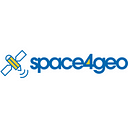Interview with the Wallonia region (BE) for the EO*GI skills needed at regional and local levels

Share with us a few words about your professional activities.
I’m in charge of geomatic projects. I’m also organising the working group about remote sensing in public services — GTCOWAL
Wallonia is a region very active in the use of space technologies and data. Could you provide a description of your region’s space capabilities?
I’m working in the public services, I’m not in the cluster in charge of promoting the space technologies and data in Wallonia. A lot of companies are active in this sector in Wallonia. For this, you can contact Michel Stassart, Skywin.

The use of EO*GI provides solutions to a wide range of territorial challenges at regional and local levels. Could you provide examples/best practices in which of the public areas your institution uses EO*GI and explain the benefits?
Examples in agriculture, land cover, risks, … (see https://www.issep.be/gteo) and Walous, Eurisy Flyer, and video
How does your organisation currently support the development of GI and EO skills? How exactly the provision of training happens at the regional level? Do you need to ask a central organisation for the training or if you outsource it to a third party?
The training offer has been done in collaboration with the research centers and universities. But what is mainly needed is co-development of products with the users. For that, we need public procurement for appropriate development combining EO from the EU and from the region.
Do you observe EO*GI skills gaps among your staff or new recruitments and how have you dealt with this challenge?
At the recruitment, the staff has often basic skills but innovation is an issue. The universities are giving basic training that is not enough operational and even not enough applied. There is a missing link between the courses and the need in the field. The interaction with the international sphere is the best way to keep updated.
What do you think is needed in order to improve GI and EO skills in your public institution and also in Europe?
More than gaps, what we need is continuous training. The recruitment shouldn't be the end, the people inside the administration should be able to learn the new techniques at conferences, in specific sessions, and with international colleagues. Mobility is essential and is missing. The collaboration through the different regions in giving access to international conferences would be a good way to involve public services in EO&GI
Wallonia is a NEREUS member region. What was your experience of the workshops organised by the Network? In which ways did you benefit as a regional administration?
Getting in contact with other regions is essential. EO4GEO is helping in creating another way to promote EO&GI training, this is essential however, for the public services in Wallonia, this is not enough. The need is more to help public servants to go out, to move, to see outside of their region.; Nereus could be good support for that.

Which of the EO4GEO solutions (BoK, Tools, training material) better fit your needs, and if/how do you intend to use them in their activities? Why was it important for you to join EO4GEO?
The BoK is an interesting tool as a referential of competencies. Understanding the variety of jobs around Eo&GI demonstrates that lectures and training cannot be the only way to train people. The training can be partly done during studies, but the professionals should be able to add different skills all along their carrier to perform better. The training should be continuous. We still have a lot to do to change the way to teach, in universities, but also in collaboration with private companies, in a research project, and within an international consortium. Opportunities of international collaboration, involving public authorities should consider their specificities and the difficulties to have access to research (no access to scientific libraries for example). EO4GEO could also point to the fact that this kind of job is biased in gender. We must change the vision to attract girls to STEM. EO4GEO could help in that. This is an economic and ethical issue for all of us.
How could the EO4GEO Alliance help you optimise the use of EO*GI technologies in your region?
Establishing bridges between public services, networking, and sheding light on the requests of these actors that are not enough informed and continuously kept in the loop.
